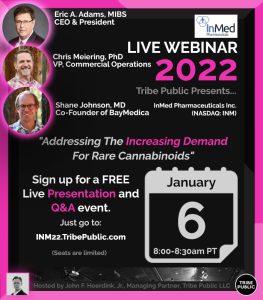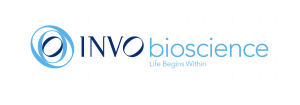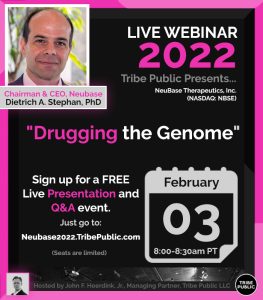Quote of the Day – “Definiteness of purpose is the starting point of all achievement.” – W. Clement Stone
It was on overall down day in the stock market as 9 of the 11 sectors closed in the red. However, if you were invested in energy stocks, then you had a banner day as it rose 1.7% in concert with oil prices jumping 5.73% to close at $115.26/bbl. The less than exciting utilities sector up .2% was the other sector that lifted today. As a result, the S&P 500 closed at 4,456.24 (-1.23%), the Dow 30 closed at 34,358.50 (-1.29%), & the Nasdaq closed at 13,922.60 (-1.32%). The small caps on the Russell 2000 also closed lower at 2,052.21 (-1.73%) & the MicroCaps also moved down significantly as the iShares Micro-Cap ETF closed at $129.39, -1.41%. Two somber macroeconomic reports surfaced today to place a negative overall tone throughout the markets including the new home sales report, which confirmed a 2% M/M drop in February to a seasonally adjusted annual rate of 772k units, while on a Y/Y basis, new home sales were also confirmed to be down a stout 6.2%. In concert with rising rates, the weekly MBA Mortgage Index report showed an 8.1% drop, while the Purchase Index also dropped by 1.5% & the Refinance Index decreased a whopping 14.4%. A bright spot, at least for the day, was the fact that the yield curve pulled back with the 2-yr treasury yield dropped by 5.6 basis points to 2.098% & the 10-yr yield dropped 8.7 basis points to 2.29%.
The banged up biotech sector also pulled back after yesterday’s surge as the SPDR S&P Biotech ETF (XBI), a barometer of the smaller biotech stocks, closed at $89.86, -2.55% after achieving an intraday high of $93.09. The 52-wk range is now $80.34- $141.50. The IBB closed at $128.37, -2.52% after hitting a session high of $131.13. The 52-wk range is $118.60 – $177.37.
Around the money and precious metals’ tree, the U.S. Dollar Index closed at $98.63, +.14% & Bitcoin (BTC) closed at $42,280.91, -1% over the last 24-hours. Gold prices closed at $1,946/oz., +$23/oz. & silver closed at $25.27/oz., +$.35/oz. on the day. Two mining producers closed the day as follows: Hecla Mining Company (HL) closed at $6.71, +.15% and First Majestic Silver Corp. (AG) closed at $13.93, +1.02%.
FURTHER AFIELD
Shares of iQIYI (IQ), an innovative market-leading online entertainment service in China, continued to climb today and closed at $4.68, +11.96%. On March 22, IQ announced that iQIYI’s original Chinese content (C-content) will be introduced to Spanish-speaking regions for the first time. Taking this opportunity, iQIYI aims to bring its high-quality original content to an even broader global audience. iQIYI’s suspense-themed Light On Theater and other original suspense dramas will be released with Spanish dubbing via 11 US, Latin American and Spanish TV channels in Spanish-speaking regions, including Toku, UltraFilm, Epic Network and Top Cine. Selected content includes Kidnapping Game, Crimson River, Sisyphus, The Long Night, Burning Ice, Meet Me @ 1006, Original Sin, The City of Chaos, and The Listener.
Shares of Century Aluminum Company (CENX) rose to $19.18, +7.56% today. On Feb. 28, Century announced that its wholly-owned subsidiary, Nordural Grundartangi ehf, signed a Letter of Intent (LOI) with industrial green technology leader, Ocean GeoLoop, for carbon capture at the Grundartangi plant in Iceland. The project has an ambition to reduce Iceland’s carbon emission by approximately 10% by deploying Ocean GeoLoop’s carbon capture solution. “We are proud to announce this agreement with Nordural, aiming to reduce carbon emissions significantly by deploying our disruptive carbon capture solution. The end-of-pipe technology is planned to be assisted by the e-Loop, a horizontal hydropower unit, enabling electricity production utilizing the CO2 from the aluminum process resulting in a self-energized carbon capture solution at Nordural,” says Odd-Geir Lademo, CEO at Ocean GeoLoop.
VP WATCHLIST UPDATES

Shares of Apple (AAPL) closed at $179.21, +.82%. On March 9, Apple® announced M1 Ultra, the next giant leap for Apple silicon and the Mac®. Featuring UltraFusion™ — Apple’s innovative packaging architecture that interconnects the die of two M1 Max chips to create a system on a chip (SoC) with unprecedented levels of performance and capabilities — M1 Ultra is expected to deliver breathtaking computing power to the new Mac Studio™ while maintaining industry-leading performance per watt. The new SoC consists of 114 billion transistors, the most ever in a personal computer chip. M1 Ultra can be configured with up to 128GB of high-bandwidth, low-latency unified memory that can be accessed by the 20-core CPU, 64-core GPU, and 32-core Neural Engine, providing astonishing performance for developers compiling code, artists working in huge 3D environments that were previously impossible to render, and video professionals who can transcode video to ProRes™ up to 5.6x faster than with a 28-core Mac Pro® with Afterburner®. “M1 Ultra is another game-changer for Apple silicon that once again will shock the PC industry. By connecting two M1 Max die with our UltraFusion packaging architecture, we’re able to scale Apple silicon to unprecedented new heights,” said Johny Srouji, Apple’s senior vice president of Hardware Technologies. “With its powerful CPU, massive GPU, incredible Neural Engine, ProRes hardware acceleration, and huge amount of unified memory, M1 Ultra completes the M1 family as the world’s most powerful and capable chip for a personal computer.”

Shares of Tesla (TSLA) closed at $999.11, +.52%.
On March 23,
Reuters reported that South Korea’s LG Energy Solution plans to build a battery factory in Arizona to supply to Tesla and other customers. The U.S. factory is expected to produce cylindrical battery cells of different sizes, for customers, including EV makers Lucid and Proterra and Philip Morris, maker of IQOS heated-tobacco sticks.
On March 22, Tesla opened a new plant outside Berlin in Gruenheide. Apparently, Elon Musk followed through again on his promise and proceeded to dance as he delivered the first 30 Model Ys at the festive German occasion. I am glad that I did not see that and I hope that he was not in lederhosen!
On the small side, Atossa Therapeutics (NASDAQ: ATOS), a clinical-stage biopharmaceutical company seeking to develop innovative proprietary medicines in oncology and infectious disease with a current focus on breast cancer and COVID-19, rose to an intraday high of $1.57 and closed at $1.47 on 1.50M shares of trading volume.
Atossa’s Dr. Steven Quay, President and CEO and Kyle Guse, CFO and General Counsel will present a corporate overview at the Maxim Group 2022 Virtual Growth Conference, which will become available on Monday, March 28, 2022 at 9:00am ET.
On March 8, Atossa announced that the U.S. Patent and Trademark office has issued a new patent further strengthening Atossa’s intellectual property in its proprietary therapy Endoxifen, which is under development for breast cancer and other breast conditions. U.S. Patent No. 11,261,151 (the ‘151 Patent) is titled “Methods for Making and Using Endoxifen” and is directed to compositions of storage-stable Endoxifen and methods of treating hormone-dependent breast disorders using the storage-stable Endoxifen. “We are very pleased with the scope and breadth of this new key patent,” said Dr. Steven Quay, Atossa’s President and Chief Executive Officer. “Patents covering the composition of matter of new therapies are critical to protect markets from generic competition. The ‘151 Patent,’ with its estimated expiration in 2038, strengthens our intellectual property estate and should create long-term stockholder value.”
Atossa is developing its proprietary Endoxifen in two clinical settings: one to reduce tumor cell activity in breast cancer patients in the neoadjuvant setting, meaning prior to surgery; and another to reduce dense breast tissue in women. A Phase 2 study is currently underway in women with measurable breast density and Atossa plans to submit a request (IND) to the FDA to open other Phase 2 in the neoadjuvant setting in the next quarter. Atossa’s neoadjuvant program is focused on breast cancers that are classified as estrogen receptor positive (ER+). Although there are numerous neoadjuvant treatments for breast cancers that are not ER+, there are few neoadjuvant treatments for ER+ breast cancer which comprises about 78% of all breast cancers. We believe there is a compelling need for therapy with our Endoxifen in this setting. An estimated ten million women in the U.S. have mammographic breast density, or MBD, for which there is no FDA-approved treatment. MBD is an emerging public health issue and studies conducted by others have shown that MBD increases the risk of developing breast cancer and that reducing MBD can reduce the incidence of breast cancer. The American Cancer Society estimates that in the U.S. in 2022, 287,850 women will be diagnosed with breast cancer, 47,550 of which will be under the age of 50 and 43,250 of which will die from the disease.
On Feb. 28, Atossa announced their financial results for the fiscal quarter and fiscal year ended December 31, 2021 and provides an update on recent company developments. Dr. Steven Quay, Atossa’s President and Chief Executive Officer stated,
“We continue to make significant progress on our Endoxifen and COVID-19 programs, with the continuation of enrollment of the Australian trial for AT-H201, as well as enrollment in our Swedish Endoxifen Phase 2 trial. We look forward to moving into the next milestones during 2022, and to providing updates on these developing therapies for urgent unmet patient needs. Further, our strong balance sheet will continue to facilitate our development plans as we not only execute on these trials but also explore additional options that could create significant shareholder value.” READ The Balance of the story.
On Jan. 27, Atossa issued the annual letter from President and CEO Dr. Steven C. Quay to Atossa stockholders. The letter Bega as follows:
“The last two years have changed the face of public health and uncovered the urgency to develop products not only to prevent widely spread infectious diseases, but to treat them with the same level of focus and dedication applied to prevention. Despite the launch of highly efficacious vaccines during 2021, the toll that COVID-19 was taking on public health was not reduced. The rise of the Omicron variant toward the end of the year, and emerging long-term impact of long COVID, remain an important public health priority, and one that Atossa is dedicated to addressing. A key feature of the original SARS-CoV-2 virus, and that is retained in both the Delta and Omicron variants, is the furin cleavage site found on the Spike protein which facilitates viral infection. Our COVID-19 programs under development are designed to interact with this cleavage site so they are expected to be effective against both current and future COVID-19 variants that continue to contain a furin cleavage site. In the meantime, we are also very excited about the ongoing development of our breast health programs with our proprietary drug Endoxifen, with one Phase 2 study underway and another expected to commence in the next quarter. We raised over $110 million in capital in 2021 and we are well positioned to execute on our programs in 2022.” Click here to read the balance of the letter now.
On Jan. 18, Atossa announced it is advancing to enroll participants in Part B of its Phase 1/2a clinical study of AT-H201 in Australia, consisting of multiple ascending dose cohorts in healthy participants. The nebulized formulation, AT-H201, is being developed as an inhalation therapy for moderately to severely-ill hospitalized COVID-19 patients and for “long-haul” patients with post-infection pulmonary disease. Part A of the study, which consisted of a single ascending dose group of 4 cohorts of healthy participants, has now been completed. The Australian Human Research Ethics Committee has reviewed the safety data from Part A and has approved the study to proceed to Part B. “The results of the first part of the study were extremely encouraging and the ethics committee concluded we may now proceed to enroll the next group of participants,” said Steven Quay, M.D., Ph.D., Atossa’s CEO and President. “A record number of hospitalizations driven by the Omicron variant is producing a crisis at many healthcare facilities. Additional therapies to combat COVID-19 are desperately needed.” The Phase 1/2a placebo-controlled study will enroll a total of 60 healthy participants and moderately-ill hospitalized COVID-19 patients. The study has 4 parts: Part A – a single ascending dose part, Part B – a multiple ascending dose part, Part C – a combination part in healthy individuals, and Part D a combination in COVID-19 infected patients. The study is being conducted by Avance Clinical Pty Ltd., a leading Australian clinical research organization. AT-H201 is a proprietary combination of two drugs previously approved by the FDA to treat other diseases and by other administration routes. AT-H201 is intended to be inhaled via a nebulizer to improve compromised lung function for moderate to severely ill, hospitalized COVID-19 patients and for “long-haul” patients with post-infection pulmonary disease. In May 2020, we completed in vitro testing of AT-H201 which showed that the components of AT-H201 inhibit SARS-CoV-2 infectivity of VERO cells, which is a standard cell type being used to study infectivity of the coronavirus. The Phase 1/2a study in Australia and other clinical studies must be successfully completed and regulatory approvals must be obtained before AT-H201 may be commercialized. No assurance can be given than studies will be successful or that regulatory approvals will be obtained.
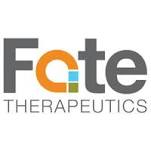
Shares of Fate Therapeutics, Inc. (NASDAQ: FATE), a clinical-stage biopharmaceutical company dedicated to the development of programmed cellular immunotherapies for patients with cancer, closed at $36.95, -2.53%.
On, Feb. 28,
Fate Therapeutics reported business highlights and financial results for the fourth quarter and full year ended December 31, 2021. Scott Wolchko, President and Chief Executive Officer of Fate Therapeutics,
“We have begun 2022 with strong clinical and regulatory momentum driving our off-the-shelf, iPSC-derived NK cell programs in relapsed / refractory lymphoma, and look forward to working with the FDA under the Regenerative Medicine Advanced Therapy designation to accelerate therapeutic development in areas of significant unmet need, such as patients who have progressed following autologous CAR T-cell therapy, and to bringing transformative cell therapies to patients in the community setting including as part of early-line treatment. We maintain a strong financial position and are poised in 2022 to achieve key clinical milestones and data read-outs across our wholly-owned disease franchises, to extend our leadership in the manufacture and CMC of iPSC-derived cell therapies with the launch of our second cGMP manufacturing facility, and to bring new multiplexed-engineered NK and T-cell product candidates to patients.”
On Jan. 10, Fate announced that the U.S. Food and Drug Administration (FDA) has cleared the Company’s Investigational New Drug (IND) application for FT536, an off-the-shelf, multiplexed-engineered, iPSC-derived, chimeric antigen receptor (CAR) NK cell product candidate. FT536 is derived from a clonal master induced pluripotent stem cell (iPSC) line engineered with four functional elements, including a novel CAR that uniquely targets the α3 domain of the major histocompatibility complex (MHC) class I related proteins A (MICA) and B (MICB). MICA and MICB are stress proteins that are expressed at high levels on many solid tumors. The Company plans to initiate clinical investigation of FT536 as a monotherapy and in combination with tumor-targeting monoclonal antibody therapy for the treatment of multiple solid tumor indications.
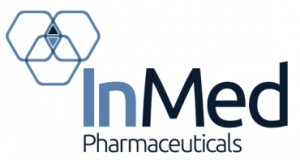
Shares of InMed Pharmaceuticals Inc. (NASDAQ: INM), a leader in the development, manufacturing and commercialization of rare cannabinoids, closed at $.755/share, prior to rising to $.7927, +4.99% in the aftermarkets.
On March 17, InMed announced that its Chief Financial Officer, Mr. Bruce Colwill, will be retiring and will be stepping down from his position at the Company effective March 31, 2022. Mr. Colwill will continue to serve as an advisor through June 30, 2022 to facilitate a smooth transition. Ms. Brenda Edwards has been appointed as Interim Chief Financial Officer of the Company effective April 1, 2022. The Company has initiated a search for a full time replacement. Ms. Edwards brings over 35 years experience to InMed including over 20 years as a Chief Financial Officer of both private and public companies. Her experience includes merger and acquisitions, financings, managing high growth situations and financial reporting. She is a member of both the American Institute of CPAs and the Chartered Professional Accountants of Canada.
On Feb. 15, Inmed announced the appointment of Gerard (Jerry) P. Griffin III as Vice President of Sales and Marketing at BayMedica, a wholly owned subsidiary of InMed. Mr. Griffin will oversee the commercialization of BayMedica’s health and wellness business including the existing products and the launch of new rare cannabinoid products. Mr. Griffin has a wealth of experience across various markets and with numerous cannabinoid products, and a proven track record as a seasoned sales executive. He has held several senior positions at both privately and publicly held companies including Fortune 500 companies. Most recently, Mr. Griffin was the Vice President of Sales and Business Development at Creo Ingredients, a biotechnology-based ingredient company that produces rare cannabinoids. Prior to Creo, he was the President of a successful wellness company, overseeing all aspects of a business that develops and distributes cannabinoid-based products. With his extensive hands-on experience in the rapidly expanding cannabinoid industry, he brings significant real-world knowledge across the entire value chain to the Company.
On Feb. 14, InMed announced financial results for the second quarter of fiscal year 2022 which ended December 31, 2021. They highlighted that they completed the acquisition of BayMedica, a rare cannabinoid manufacturing and commercialization company in the health and wellness sector, they strengthened IP with patent filing for use of rare cannabinoids for the treatment of neurodegenerative diseases, they initiated the commercial rollout of an additional rare cannabinoid, CBT- first of several rare cannabinoid launches planned for the first half of 2022, & they advanced the pharmaceutical drug development programs in EB, glaucoma and neurodegenerative diseases.
READ THE BALANCE OF THE RELEASE.
On Jan. 19, InMed announced that it has launched B2B sales of the rare cannabinoid cannabicitran (CBT) into the health and wellness sector. CBT is the first of several new product launches planned for the first half of 2022. InMed’s subsidiary, BayMedica, has received initial purchase orders and has commenced commercial sales of the ultra-rare cannabinoid CBT. CBT is the second rare cannabinoid to be launched by BayMedica, which also sells CBC wholesale as a raw ingredient to the health and wellness sector. Additionally, commercial scale production of cannabidivarin (CBDV) is underway, with tetrahydrocannabivarin (THCV) production scheduled to follow shortly thereafter. The Company expects to produce over 100kg of CBDV and THCV in the coming months to meet anticipated initial demand. Shane Johnson, SVP and General Manager of BayMedica stated, “We are delivering on our objective to launch additional rare cannabinoids in early 2022 in response to inbound demand. By midyear, we expect to have at least four rare cannabinoids available for the health and wellness markets, positioning us as a leading large scale supplier of high quality rare cannabinoids in these sectors. The launch of CBT further demonstrates our ability to produce rare cannabinoids at commercial scale, an achievement that very few companies have been able to accomplish. We are pleased with initial demand and we expect to grow sales over the coming quarters as we continue to expand our product portfolio of rare cannabinoids.” This emerging market is expected to grow significantly due to the increasing awareness of the potential benefits of cannabinoid-based products. According to the December 2021 Grand View Research report, the retail market for rare cannabinoids is expected to reach US$26 billion by 2028 with a forecasted compounded annual growth rate (CAGR) of >20% during the same period. With the availability of these rare cannabinoids at commercial scale, product manufacturers and consumer brands now have the ability to deliver differentiated products, including augmenting existing CBD-based products, to consumers in the health and wellness marketplace.
On Jan. 6, InMed’s CEO Eric A. Adams, Shane Johnson, SVP and General Manager of BayMedica and Chris Meiering, VP of Commercial Operations, presented at Tribe Public’s Webinar Presentation and Q&A Event titled
“Addressing The Increasing Demand For Rare Cannabinoids.” On Jan. 5th, InMed issued its
Annual Letter to Shareholders from President and CEO Eric A. Adams which stated,
“Building on a very strong 2021, we are looking forward to 2022 with the continued advancement of our pharmaceutical drug development programs and, with our acquisition of BayMedica, transitioning to becoming a leading B2B supplier of rare cannabinoids to the consumer health and wellness sector. I’m very excited to provide updates on our progress as we begin to commercialize new products and explore an array of rare cannabinoids for their potential therapeutic applications.” Click here to read the letter.
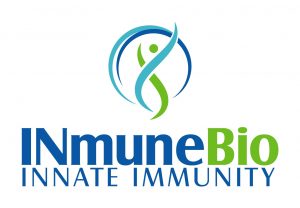
Shares of INmune Bio, Inc. (NASDAQ: INMB), a clinical-stage immunology company focused on developing treatments that harness the patient’s innate immune system to fight disease, closed at $8.10, -3.91% and has traded up to $8.31, +2.59% in the aftermarkets.
On March 15, INmune Bio announced nine pieces of data, including oral symposia, would be presented at AD/PD™ 2022 – International Conference on Alzheimer’s and Parkinson’s diseases. The AD/PD™ 2022 International Conference is being held from March 15-20 in Barcelona, Spain. Raymond J. Tesi, Ph.D, Chief Executive Officer of INmune Bio, commented,
“This is the first time many clinician teams in Europe and UK have been exposed to XPro™ and INmune Bio’s approach to treatment of Alzheimer’s Disease,” said RJ Tesi.
“These nine presentations show the versatility of XProTM and the importance of neuroinflammation in the pathogenesis of neurodegenerative disease. The presentations provide a great overview of XPro™ for the treatment of AD, introducing the novel biomarkers INmune is using, and how the results of the Phase I trial provided insight into the design the Phase II trials in mild cognitive impairment and Mild Alzheimer’s.” LEARN MORE HERE.
On March 3,
INmune Bio reported its financial results for the year ended December 31, 2021 and provided a business update. INmune Bio highlighted that in December, the Company reported data from the first patient treated with INKmuneTM in the myelodysplastic syndrome (MDS) Phase I clinical trial. More than 100 days after the course of INKmuneTM therapy, 60% of the patient’s NK cells showed the activated, tumor killing memory like NK cells phenotype, a fourfold increase from pre-treatment. The patient’s memory like NK cells killed >70% of NK resistant tumor cells in an in vitro assay. The patient remains well and with an ECOG status of 0, a two-point drop from pre-treatment. Additionally, two patients were treated with INKmuneTM under compassionate use after having failed at least one allogeneic bone marrow transplant. One of the two patients has been discharged home, one remains hospitalized. In all cases, INKmuneTM therapy was well tolerated, safe and was given without any type of pre-medication or cytokine therapy. “These patients demonstrate the unique attributes of INKmuneTM therapy in patients with high-risk MDS/AML. INKmuneTM converted the patient’s resting NK cells into cancer killing memory like NK cells. The memory like NK cells killed NK-resistant cancer cells in an in vitro assay. Both these attributes lasted four months, a trait we are calling therapeutic persistence.” stated RJ Tesi, M.D., Chief Executive Officer of INmune Bio. “We are continuing to screen patients for enrollment into the trial and are in process of expanding the number of clinical trial sites.”
On Jan. 25, INmune announced that the company has entered into a pre-clinical research collaboration with Chinese University of Hong Kong (CUHK) to evaluate INKmune™ — the company’s pseudokine NK cell priming platform — in nasopharyngeal cancer (NPC), a type of head and neck cancer. The Strategic Partnership Award for Research Collaboration, which was granted by the CUHK Office of Academic Links, is between Prof. Michael Tong at CUHK and Prof. Mark Lowdell at University College London (UCL) and Chief Scientific Officer of INMB. The project provides INMB scientists working at UCL with access to the only three proven NPC cancer cell lines to test the ability of INKmune-primed NK cells to kill NPC tumors.
Prof. Lowdell stated, “Our colleagues at CUHK have been studying NK cell responses to NPC for many years but have not yet translated them into clinical trials. They have shown the need for cytokine activation with IL2 or IL15 to achieve tumor killing. We believe pseudokine activation by INKmune will provide all the relevant NK activating signals of IL2 and IL15 plus a host of other critical NK survival signals and generate memory-like NK cells. We are confident that these INKmune primed cells will kill NPC tumor cells very effectively and we look forward to a mutually beneficial collaboration.”
RJ Tesi, INmune Bio’s Chief Executive Officer stated, “Over 180,000 cases of NPC were diagnosed last year with 85% originating in Asia. Current treatments are quite poor, leading to high mortality rates. History of EBV infection (commonly known as mono) and genetic polymorphisms drive the incidence of the disease. This peer-reviewed grant and international collaboration targeting what has historically been a difficult to treat solid tumor validates the versatility of INKmune. We look forward to translating this work to the clinic in the near future.”
Shares of INVO Bioscience, Inc. (NASDAQ: INVO), a commercial-stage fertility company focused on expanding access to advanced treatment worldwide with its INVOcell® medical device and the IVC procedure it enables, closed at $2.65, but has traded up to $2.98, +12.45% in aftermarket trading.
The roundtable, titled “Advances in Women’s Health: From Clinical to Commercial” will be webcast live on Monday, March 28th at 3:00pm. Participants will also include executives from other leading women’s health companies.
On Feb 16, INVO announced plans to open its next INVO Center in Tampa, Florida. The Tampa INVO Center will focus on patients in need of advanced fertility care utilizing the efficient, effective, and affordable INVOcell® solution. The company currently has three operational INVO Centers treating patients in Birmingham, Alabama, Atlanta, Georgia, and Monterrey, Mexico, with another scheduled to open in the San Francisco area. “Following significant diligence and in consultation with industry experts, we are excited to announce Tampa as the next INVO Center location,” commented Steve Shum, CEO of INVO. “The characteristics and demographics of the Tampa market lend themselves perfectly to our INVO Center approach focused on expanding access to advanced fertility services for the significantly underserved patient population. By leveraging the blueprint and experiences from our earlier centers, we look forward to opening the clinic in 2022 and advancing our mission of democratizing fertility care. We are also actively conducting due diligence in several other markets as we look to initiate further expansion of our INVO Center commercialization platform.” The company expects to engage physician partners, similar to the models deployed in its other centers.
On Feb. 3, INVO announced that effective February 1, 2022, INVO has regained full U.S. commercialization rights to its INVOcell technology, enabling the Company to sell directly into existing IVF clinics, to expand the number of INVO Centers free of any limitations, and to pursue its market expansion strategy focused on increasing access to care and democratizing fertility care for underserved patients. Today, the global fertility market is a multi-billion industry, yet remains severely underserved, with estimates suggesting more than 90% of couples in need of infertility treatment going without care. INVO believes INVOcell and the IVC procedure are well suited to address existing industry capacity challenges and provide an affordable and effective fertility option for patients in need. Mike Campbell, COO and V.P. Business Development of INVO stated, “We are now able to synchronize and take an expanded, more comprehensive and direct approach toward our U.S. commercialization efforts. In addition to supporting and expanding upon the approximate 100 U.S. IVF clinics that have trained on the INVOcell device and the IVC treatment process for their operation, we expect to advance our INVO Center efforts as a critical part of the U.S. strategy moving forward. With our initial three centers now fully operational and focused on delivering INVOcell and the IVC procedure, we are excited to continue rolling out additional centers. As previously noted, we have initially identified over 20 cities in the U.S. as attractive markets. We believe our multi-channel commercial strategy of supporting, servicing, and expanding across the existing IVF clinic network as well as building new, dedicated INVO Centers will help drive increased market awareness of our revolutionary technology, and provide a viable option to help served the large, underserved patient population”
On January 19, Maxim Group’s sell side analyst Jason McCarthy, Ph.D. initiated coverage with a Buy Rating Report titled “INVO Bioscience: Transforming Assisted Reproductive Technology with Intravaginal Culture” with a $7 Price Target.
On Dec. 16,
INVO Bioscience, Inc. announced that it has entered into an expanded agreement with Ovoclinic, a group of clinics specialized in assisted reproductive treatments with four locations across Spain (Madrid, Marbella, Málaga, Ceuta) and collaborating centers around Europe, to accelerate adoption of INVOcell within their markets. The agreement includes the expanded adoption of INVOcell within Ovoclinic locations as well as establishing an INVO Center of Excellence for future training for the European Market. Cristina Gonzalez, embryologist and Quality Manager of Ovoclinic laboratories stated,
“After several successful trials implementing the exciting INVOcell fertility treatment, Ovoclinic aims to provide its patients with this effective alternative to the processes used so far in Spain in the field of reproductive medicine. We consider INVOcell to be an effective method of natural reproduction that involves the future mother at the very first moment of the process. We are confident that this innovative treatment will help many patients to choose this new alternative solution to achieve their dream of forming a family by actively participating in the reproductive process.” According to the World Bank, Spain, with total population of approximately 47 million people, has one of the lowest fertility rates in Europe, affecting approximately 15% of the population, or one in seven couples of reproductive ages. According to reports, in 2010, there were approximately one million couples requesting assisted reproductive treatment, however only 22% received one or more assisted reproductive treatment cycles. The average waiting time for an IUI or IVF cycle in a public health facility was 339 days. Ovoclinic reports that they maintain the best technical and human resources to deal with all kinds of infertility problems along with the simplest and most natural treatments to the most complex and advanced techniques pioneered in Spain. Ovoclinic also works in partnership with Ovobank, the first European Donor Egg Bank in Europe.
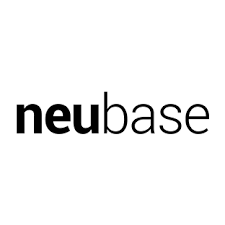
Shares of NeuBase Therapeutics (NASDAQ: NBSE), a biotechnology platform company Drugging the Genome™ to address disease at the base level using a new class of precision genetic medicines, closed at $1.99, +1.03%, & have traded up to $2.23, +13.20% in the aftermarkets. The 52-wk range is $1.21-$7.98.
On March 16 and march 17, newly appointed Neubase CFO purchased a 10,000 shares of NBSE stock each day for a total of 20,000 shares at $1.62/share and $1.74/share respectively. Here’s the
Form 4 filing at the SEC.
On March 13, Neubase announced new preclinical data for its lead development candidate, NT-0231.F, to treat myotonic dystrophy type 1 (DM1). These data are being presented in poster and oral presentations at the 2022 MDA Clinical & Scientific Conference, which is taking place virtually and in-person in Nashville, Tennessee from March 13-16, 2022. These data was presented at the RNA Leaders World Congress in Basel on March 17th.
Sandra Rojas-Caro, M.D., Chief Medical Officer of NeuBase, said, “DM1 is a significant unmet medical need characterized by myotonia, muscle weakness and wasting, and cognitive impairments. We are excited to present new preclinical data for our lead candidate, NT-0231.F, to support our differentiated approach for DM1. Systemic administration of NT-0231.F achieves clinically relevant molecular and functional rescue in the muscle in the HSALR model, which reproduces many components of the disease. Initial pharmacokinetic data supports a whole-body solution to the disease, and additional preclinical work is in progress to assess biodistribution in key tissues. These data are an important milestone in our DM1 development program and support our pursuit of a best-in-class therapeutic profile for the disease.”
A single intramuscular dose confirmed that NT-0231.F is pharmacologically active in the muscle and drives molecular and functional rescue in the HSALR model, including splice rescue, nuclear aggregate resolution, and myotonia (delayed muscle relaxation after contraction) reversal. A single intravenous (IV) dose of NT-0231.F or multiple subcutaneous (SC) doses over a 28-day period broadly rescued splicing, including the chloride channel (Clcn1) transcript, and reversed myotonia in the model. A single IV dose of NT-0231.F provides initial splice rescue at around two weeks, with significant splice rescue around three weeks. Myotonia reversal was achieved at around four weeks, with effects enduring to at least six weeks, the longest time point tested so far. A time course of multiple SC doses across increasing concentrations of NT-0231.F was also investigated and showed splice rescue and myotonia reversal in a dose-responsive manner, illustrating feasibility of the differentiated and patient-friendly SC route. In pharmacokinetic studies of NT-0231.F in wild-type BALB/C mice, a single IV or SC dose showed high volume of distribution, suggesting wide tissue distribution.
Dietrich A. Stephan, Ph.D., Founder, Chief Executive Officer, and Chairman of NeuBase, said, “We now have preclinical data in the gold-standard animal model for our development candidate demonstrating robust reversal of myotonia, as measured by muscle relaxation in these studies. We believe we are the only company that has shown improved muscle relaxation after systemic routes of administration. The HSALR model is also a high bar for human disease in that it contains at least 10x more mutant gene CUG- repeat targets than patients, giving us further conviction in the robustness of our approach. Not only does this data support the further advancement of our lead program in DM1 and keep us on track for submitting an Investigational New Drug application to the U.S. Food and Drug Administration in 4Q CY2022, it also validates that we can utilize our PATrOLTM platform to design novel genetic medicines that target and rescue many other gene dysfunctions, with the potential for clinically impactful outcomes in both rare and common diseases.”
On Jan. 10, NeuBase announced the appointment of Todd P. Branning as Chief Financial Officer (CFO). Mr. Branning has more than 25 years of experience leading corporate finance and accounting, tax, financial planning and analysis, and investor relations for several publicly traded pharmaceutical companies. Prior to joining NeuBase, Mr. Branning was CFO of Phathom Pharmaceuticals, Inc., a publicly traded late clinical-stage biopharmaceutical company. Before that, he was Senior Vice President, CFO of Amneal Pharmaceuticals, Inc., a publicly traded pharmaceutical company, where he helped to build, leverage, and optimize infrastructure following the completion of a transformational merger. Prior to joining Amneal, he was Senior Vice President, CFO of the global generic medicines division at Teva Pharmaceutical Industries Ltd., a multinational generic pharmaceuticals company, where he led the finance function and served on the leadership team responsible for managing the day-to-day operations of Teva’s largest multi-billion-dollar commercial unit. Mr. Branning has also held financial leadership roles at Allergan plc, PricewaterhouseCoopers LLP, PPG Industries, Inc., and Merck & Co., Inc. Mr. Branning received his BBA from the University of Miami and MBA from Carnegie Mellon University. Mr. Branning is also a Certified Public Accountant and has completed a CFO certification program at The Wharton School at the University of Pennsylvania.
On Jan. 5, Neubase announced the appointment of Eric J. Ende, M.D., to the Company’s Board of Directors. Dr. Ende has nearly 25 years of experience in advising biotechnology and life sciences companies to optimize corporate strategy and structure and maximize shareholder value. “Dr. Ende has the experience and perspective to recognize the opportunity ahead for NeuBase as it plans for the clinical development of its potentially transformational new class of precision genetic medicines,” said Dietrich A. Stephan, Ph.D., Founder, CEO and Chairman of NeuBase. “We welcome Dr. Ende’s strategic insight as we begin to scale our therapeutic candidate pipeline from our new precision genetic medicines platform technology. In addition to his broad experience, he also shares in our Company’s goal of helping millions of patients with both common and rare conditions that currently have limited or no treatment options.” “I believe NeuBase has a game-changing technology that overcomes the limitations of early precision genetic medicines by delivering mutation selectivity, repeat dosing, and systemic administration in a modular precision medicine platform with the potential to efficiently scale to treat a wide variety of diseases that are currently undruggable,” said Dr. Ende. “I look forward to working closely with NeuBase’s leadership team and Board of Directors to elevate strategy and operations in order to create exceptional value for patients and shareholders.” Dr. Ende currently is the President of Ende BioMedical Consulting Group. He also is a member of the Board of Directors of Matinas BioPharma, where he is the Chairman of the Compensation Committee and serves on the Audit and the Nomination & Governance Committees, and of Avadel plc, where he is the Chairman of the Nomination & Corporate Governance Committee and serves on the Audit and Compensation Committees. Dr. Ende previously served on the Board of Directors of Progenics (acquired by Lantheus Holdings) and Genzyme (acquired by Sanofi-Aventis for $20 billion). During his time on Genzyme’s Board of Directors, Dr. Ende was a member of the Audit and Risk Management Committees. Prior to Genzyme, Dr. Ende was a biotechnology analyst, previously serving at Merrill Lynch, BofA Securities, and Lehman Brothers. Dr. Ende received an M.B.A. from NYU Stern School of Business, an M.D. from the Icahn School of Medicine at Mount Sinai, and a B.S. in biology and psychology from Emory University.









